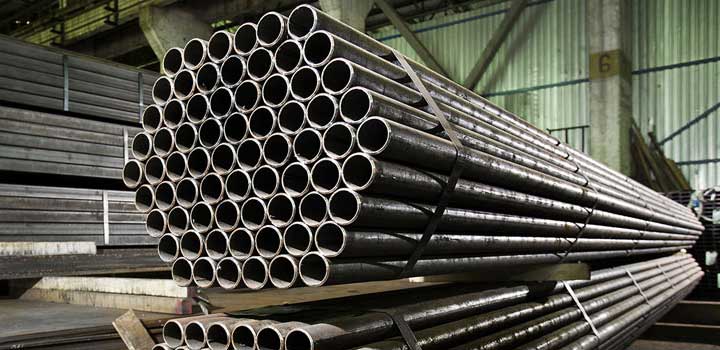Understanding BS 6323 Part 5 Specification The length tolerances of St 45 ERW pipes play a crucial role in various industrial and manufacturing processes. They ensure consistent and accurate dimensions, which are vital for the proper assembly and functionality of components in machinery and construction systems. Adhering to these tolerances allows manufacturers to achieve better consistency and interchangeability of parts, reducing the need for extensive modifications during installation. This precision also minimizes material waste and enhances production efficiency. Standard Length Tolerances for BS 6323 Grade CFS 5 Tubes Carbon plays an essential role in enhancing the properties of materials used in manufacturing and industrial applications. The average carbon content boosts the strength and hardness of the material, making it suitable for high-pressure environments. It also balances weldability and machinability, allowing for easier processing without compromising structural integrity. Chemical Composition of BS 6323 Part 5 A yield strength of 350 MPa indicates the stress level the tube can endure before experiencing permanent deformation. This guarantees structural integrity under normal operating conditions. This property ensures the ability to handle various loads and pressures while maintaining shape and function over time. With a tensile strength of 540 MPa, BS 6323-5 grade tubes offer numerous advantages. Primarily, they exhibit high tensile strength, crucial for applications requiring protection against mechanical stress. This strength ensures that the tubes can withstand significant loads and pressures without damage or failure. Additionally, they possess good ductility and strength, allowing them to be formed, bent, and shaped into desired configurations. This consistency in quality and performance contributes to the reliability of final products. Mechanical Properties of BS 6323-5 Equivalent Grades to EN 1.0408 These tubes are renowned for their excellent formability, enabling them to be easily shaped and fabricated. Their mechanical properties include good ductility and bending strength, facilitating their use in manufacturing processes such as bending, flaring, and forming without cracking or compromising their design strength. These characteristics improve their versatility and reduce manufacturing costs, ensuring smooth production processes with minimal disruptions. Diameter Tolerances of St 45 ERW Pipes Material Testing for BS 6323-5 Tubes These materials are extensively utilized in automotive and engineering sectors due to their balanced combination of strength, hardness, and machinability. Typically containing 0.40% carbon, they enhance mechanical properties. Suitable for applications requiring high strength and wear resistance, such as bolts, shafts, and gears, their ability to undergo heat treatments makes them highly versatile for engineering purposes. Applications of BS 6323 Part V ERW Tubes L360 Line Pipe,Leach Line Pipe,Copper Water Pipe,L360/ L360N Steel Pipe Tianjin Gongjiantiangang Steel Pipe Co., Ltd. , https://www.tjgjtggg.com
Table of Contents
Grade
BS 6323 Part 5
Wall Thickness
Customizable
Length
12m / 6m / 6.4m
Ends
Plain / Threaded / Beveled
Processing Services
Type of Pipe
ERW / CDW
Heat Treatment
Stress Relieved (BK+S)
Internal Diameter Precision
H7 / H8 / H9
Surface Roughness
Ra0.2~0.8um
Thread Configuration
Checking St 45 ERW Pipe Length Tolerances
Component Length (mm)
OD 30-100 mm
OD 100-254 mm
10-100
+ 1.0/- 0
+ 2.0/- 0
100-600
+ 2.0/- 0
+ 3.0/- 0
600-1200
+ 3.0/- 0
+ 4.0/- 0
1200-5000
+ 5.0/- 0
+ 6.0/- 0
BS 6323 Part V ERW Tubes Contain 0.25% Carbon
Reference Mechanical Properties of BS 6323-5 Grade
Yield Strength
Tensile Strength
350 MPa
540 MPa
Standard
EN
DIN 23912
EN 1.0408 / St 45
BS 6323 Grade HFS 5 Tubes Are Easy to Shape and Form
T/D-Ratio
Tolerance Limits
≥0.05
1
0.05>T/D≥0.025
1.5
<0.025
2
EN 1.0408 Materials Are Widely Used in Automotive and Engineering Applications
This document provides a comprehensive overview of the BS 6323 Part 5 specification, detailing its chemical composition, mechanical properties, and various applications. The focus on length tolerances, diameter tolerances, and material testing ensures compliance with industry standards, making these tubes suitable for critical applications in diverse fields.
Carbon
0.4%
Silicon
0.35%
Manganese
0.9%
Phosphorus
0.05%
Sulfur
0.05%
Iron
98.9%